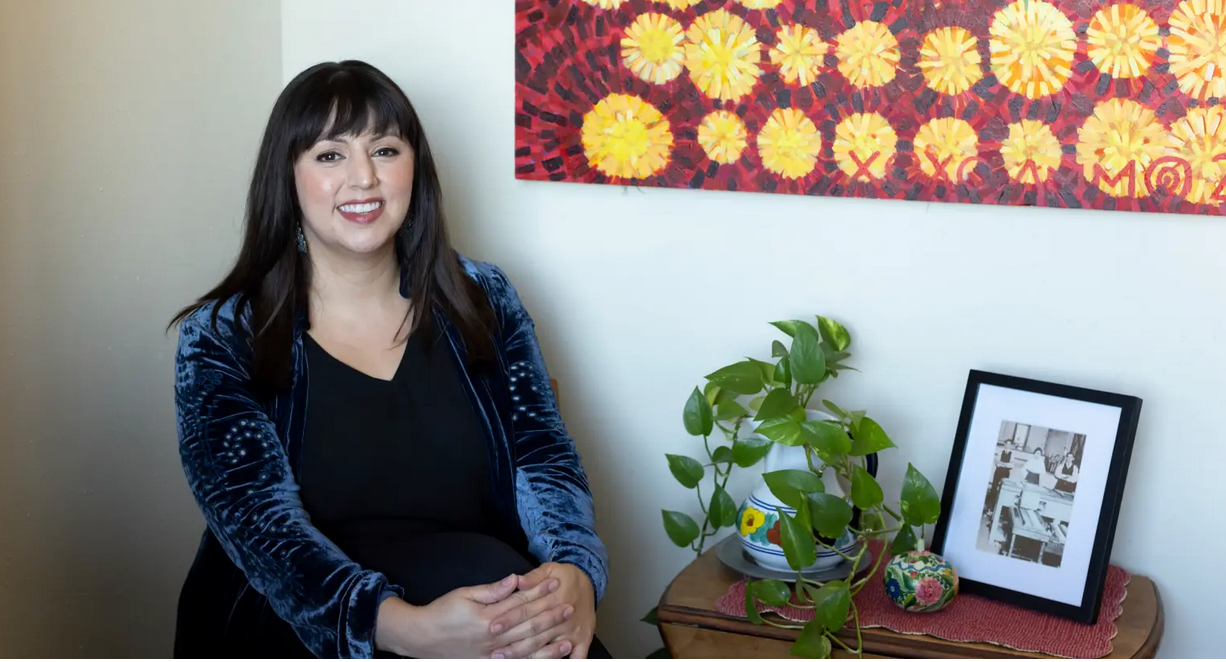
Learn the history of racial violence along the Texas-Mexico border with a 2021 MacArthur fellow
Monica Muñoz Martinez is a historian at the University of Texas-Austin and the foremost Latina expert on the border’s past.
A Latina historian dedicated to keeping alive the narratives of long-dead victims of racial violence along the Texas-Mexico border is one of 2021’s MacArthur fellows and the recipient of a “genius grant.”
Monica Muñoz Martinez, a historian at the University of Texas-Austin, was recognized partly due to her book, The Injustice Never Leaves You: Anti-Mexican Violence in Texas, which is about the hundreds of Mexicans and Mexican-Americans slaughtered by vigilantes and Texas Rangers about a century ago.
MacArthur Fellow Monica Muñoz Martinez is bringing to light long-obscured cases of racial violence along the U.S.–Mexico border and their reverberations in the present. https://t.co/2kkz0JWTFn
— Prison_Health (@Prison_Health) September 29, 2021
The historian was born and raised in the South Texas town of Uvalde, and now at 37, she is one of the world’s top experts on the subject of racial violence history along the Texas-Mexico border.
It wasn’t until she attended Brown University as an ethnic studies major that she truly explored the Chicano rights movement, the history of segregated schools in Uvalde, and the tenacious activists of her own community.
In addition to teaching history at UT-Austin, Martinez is also the founding member of the nonprofit Refusing to Forget, an award-winning public history project committed to sharing the history of state-sanctioned violence against Mexicans and Mexican-Americans in Texas.
Congrats to Monica Muñoz Martinez for earning the prestigious MacArthur fellowship! We were fortunate to have her speak at our "Un Recuerdo Brutal: A History of Violence in Texas" event last fall. https://t.co/cPzThNNyMb
— UT DDCE (@UT_DDCE) September 29, 2021
In a 2019 interview with NBC News, Martinez explained that these perpetrators were able to carry out the violence with impunity and a cloak of legal authority because much of it was sanctioned by the state government, and executed by U.S. soldiers and local law enforcement.
The case cited most often occurred in 1918 in Presidio County, southeast of El Paso County, and is referred to as the Porvenir massacre
RELATED CONTENT
Texas Rangers working with ranchers raided the Mexican-American community of Porvenir in the middle of the night, separated men and boys from their families and killed them while they were under arrest and in the Rangers’ custody, Martinez said.
Martinez said that at the time, the media depicted the victims as criminals, squatters and bandits, despite the fact that they were simply ranchers and farmers. There were never any prosecutions.
The Chicago-based John D. and Catherine T. MacArthur Foundation announced the 25 recipients of the “genius grant” awards on Tuesday, Sept. 28, who will each receive $625,000.
Martinez is part of an eclectic group of recipients that include scientists, poets, filmmakers and economists. Just like in previous years, the work of many of those honored involve high newsworthy topics from voting rights to how history is taught in schools.
Let's take a moment today to celebrate boundless creativity...
— MacArthur Foundation (@macfound) September 28, 2021
Meet the 2021 MacArthur Fellows, 25 extraordinarily creative and inspiring individuals in all fields of endeavor: https://t.co/6wIercy5in
pic.twitter.com/Blc8f8VqJg
“Kids are so smart; we can’t underestimate their ability to understand complex ideas and to have discussions about what’s happening today. The classroom is a place for them to learn and process those things,” Martinez told Texas Monthly on the topic of addressing racism and discrimination in classrooms.
Martinez is now the ninth professor at UT-Austin to win the “genius grant,” which will assist her in tackling her newest brainchild, “Mapping Violence,” a digital map of lost or forgotten cases of racial violence in Texas in the early twentieth century.
“This award is so timely for me, personally… to remain committed to make sure the public has access to the truth, true history, even when it is troubling [and] especially when that history can help us build a better future,” Martinez told NBC News.











LEAVE A COMMENT: